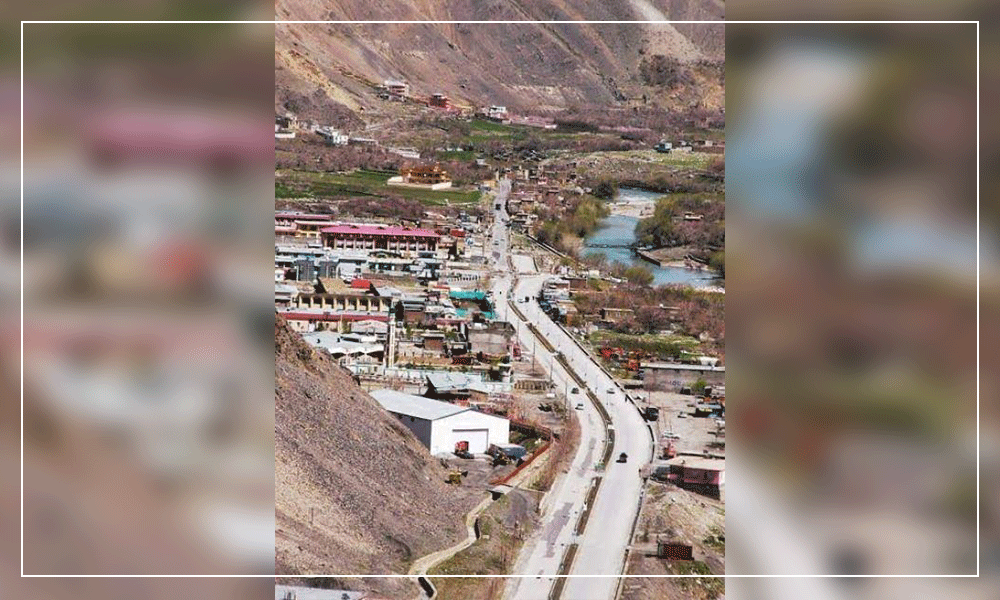PARAKH (Pajhwok): Some residents of remote areas in central Panjsher province have complained against the lack of access to health facilities due to long distance while officials pledged to increase the number of mobile medical teams.
Senior Health Department Official Mohammad Ibrahim Hazim said, there are 4 clinics in Bazarak, the provincial capital, 2 clinics in Shutul district, 3 clinics and a hospital of Emergency in Onaba district, a 40 bed hospital and 3 clinics in Rukha district, 5 clinics in Dara district, 4 clinics in Abshar district, a 20 bed hospital and 5 clinics in Hisa Awal district and 6 clinics in Pariyan district.
Hazim added, these health facilities covered 85 percent patients while individuals suffering from other diseases the treatment of which is not available in local hospitals are sent out of the province for treatment.
The residents of this province acknowledged positive improvement in the health services provided to the people while the residents of some remote areas experience problems in this regard.
Abdul Basit, the resident of Deh Manjhor area Bazarak city, the provincial capital told Pajhwok Afghan News, the provision of health services has improved compared to the past.
Abdul Basit said, the patients in the health centers are offered medicines while some residents of some remote areas still have no access to health services, he asked the government to pay more attention to the health services in remote areas.
He added: “I am a government receive member and gets 8,000 afs monthly, if the health services are not good here, I won’t be able to take my children to Kabul city for treatment”.
Abdul Qayoum, a resident of Balaq village — a remote area — said, the residents of Balaq, Chamalwara, Buta Waar and Du Shakh faced problems when it comes to health facilities.
We need to risk an hour and half walk to reach a clinic in Siawash area, it is very hard for the people of Balaq.
Abudul Qayoum said, the road to Balaq village is not asphalted, no vehicles run on this road.
It is also hard to find a taxi, even if found the driver charges its customer 1,500 afs. People are poor, they cannot pay that much money so they need to accept the risk of walking.
Tulkha area is another remote area of Panjshir province.
Masoud, another resident of this area whiel referring to the probeelms faced by them related to access to health facilities said: “It is very hard to take a patient for an hour and half walk to the health center, the road is rough and it goes through mountainous areas, the drivers charge exorbitant amount of money, the people cannot afford it”.
Masoud admitted: “The services of mobile team are good, it has more facilities but the number of its servicemen is limited, they cannot reach all the people of remote areas, he asked the government to increase the number of mobile teams’ members”.
Doctor Abed Ahmadi, a resident of Rukha district said, the supply of health services of mobile teams are impressive.
The mobile teams did a wonderful job they covered 96 percent of our problems, adding the number of these teams needed to be increased. In addition, in some areas these teams could not travel.
Economic Affairs Expert Ahmad Shahab Alizad said the government must take more steps about the extension of health services through solid based health centers in remote areas, because the people over there weere poor and they were not capable to take their patients to Kabul or any other hospitals of other provinces.
Alizad said, the supply of health services had direct link with the development of the economy condition of families.
Public Health Department Director Dr. Asadullah Nijat said currently four mobile health teams were active in remote areas of Panjshir province and they periodically travel to remote areas to provide their services.
He said Health Department had planned to double the number of health mobile teams next year from four to eight so they could respond to the needs of the people.
He added the remote areas are not densely populated so there is no need for permanent health centers, the mobile teams can respond to the needs of people of such areas.
Nijat said, every mobile clinic consists of a doctor, a midwife, a nurse, a psychiatrist and a vaccinator and it usually has 22 types of medicines and a vehicle.
Without offering more detail, the provincial director of Panjshir province said that they have a plan to create two more 50 bed hospitals during the upcoming solar year.
Aw/nh







GET IN TOUCH
NEWSLETTER
SUGGEST A STORY
PAJHWOK MOBILE APP